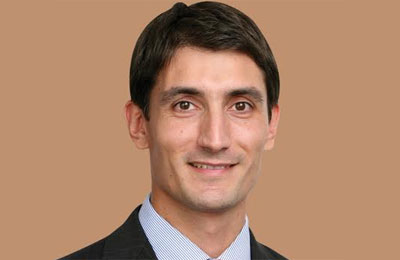
Dr Edmondo Borasio
‘Not all laser eye surgeries are the same’
DUBAI, September 15, 2014
Not all laser eye surgery and surgeons are the same, said a top Dubai-based eye surgeon, adding that prospective candidates need to be informed about the options, possible complications and the doctor’s qualifications and experience.
“Laser eye correction is safe and complications are rare, as long as you are in expert hands,” added Dr Edmondo Borasio, consultant corneal and refractive surgeon at Moorfields Eye Hospital Dubai.
“All laser surgeons should be qualified doctors but no further specialist qualifications are required to carry out the surgery and so a doctor may be relatively inexperienced in the correction procedure and technology he/she is using. This means that patients have to take greater responsibility for making sure they are in professional and experienced hands.”
All laser vision correction surgeries work by reshaping the cornea, the clear front part of the eye, so that light travelling through it is properly focused onto the retina located in the back of the eye.
But there are several different types of surgery – such as Lasik, Lasek and PRK - and prospective patients need to be clear on what procedure would best suit their needs, give them the desired outcome and improved vision, and they need to be sure that they are working with the right procedure, the best technology in expert hands, before committing.
“Every patient should be assessed thoroughly with a comprehensive eye examination and a review of medical history to ensure they are appropriate candidates for the surgery, said Dr Borasio.
There are no official figures for the UK but it is estimated that 15,000 people undergo laser eye surgery every year. It is quick, painless, effective and affordable and for many spectacle and contact lens wearers, it will change their lives; but care is required to ensure that patients get the best possible outcome.
The Royal College of Ophthalmologists advises anyone considering the operation to ask the surgeon for details of their training, qualifications, length of practice and results. Ideally, they should be a fellow of the Royal College of Ophthalmologists or the Royal College of Surgeons.
“Patients only have – or should have – refractive eye surgery once in their lives and so they must make sure that they are getting the safest and most effective treatment and fully understand the surgical options, the probable outcomes and any potential complications or side effects,” said Dr Borasio.
“Doctors must also ensure that they help patients fully understand what improvements they can expect in their vision and whether they may still need to use reading glasses, for example. It is essential to agree the optimum outcome for the patient, based on age, vision, and lifestyle requirements (such as sports, working environment, need to read or driving at night).
“The resulting vision for the patient should be an improvement on pre-treatment eyesight with glasses or contact lenses,” he added.
“Unfortunately, some patients do not always get the results they wanted or expected from laser surgery and may have complications from other eye diseases or complications following previous laser surgery. Moorfields is also a referral centre for the management of complications following previous refractive surgery, so we do see these patients,” Dr Borasio concluded.
Moorfields Eye Hospital Dubai is currently offering patients (minimum age 21) a saving of up to Dh3,000 ($816) on vision correction surgery – subject to terms, an initial assessment and the treatment administered – until October 31. – TradeArabia News Service







